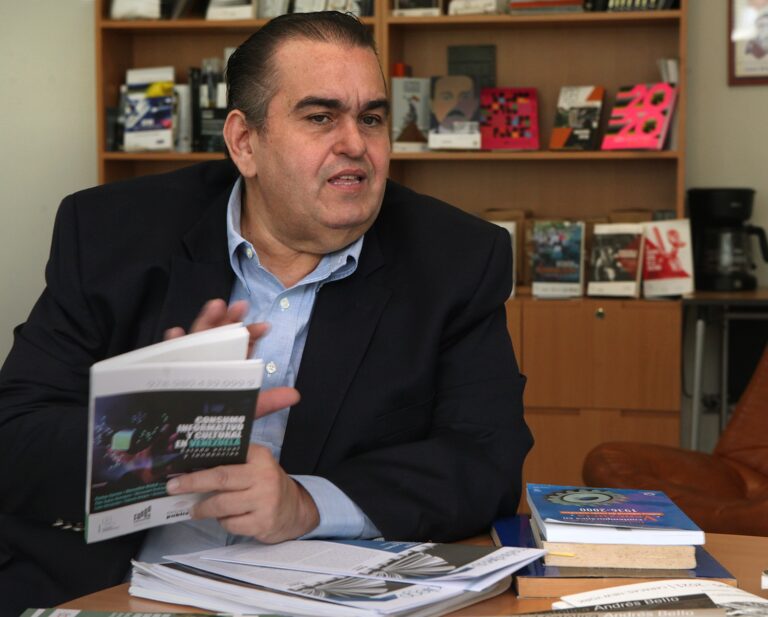(IPYS/IFEX) – On 22 August 2008, National Guard officers in the Sierra de Perijá, Zulia state, northern Venezuela, detained the following people: María de los Ángeles Peña, a journalist and freelance documentary maker; Tomás Becerra, a documentary maker, communications student and member of the National Association of Free and Alternative Community Media; Mariluz Guillén, a […]
(IPYS/IFEX) – On 22 August 2008, National Guard officers in the Sierra de Perijá, Zulia state, northern Venezuela, detained the following people: María de los Ángeles Peña, a journalist and freelance documentary maker; Tomás Becerra, a documentary maker, communications student and member of the National Association of Free and Alternative Community Media; Mariluz Guillén, a journalist and information contributor for human rights organisations; and Kellys Amundaray, a journalist for the Homo et Natura Foundation. The journalists and documentary makers were videotaping a march by members of the Yupka indigenous group in which another 40 people who arrived from different regions of the country also participated.
The march took place after a series of violent confrontations between landowners and members of the Yupka who are defending their territory in the Sierra de Perijá.
According to Amundaray, the area where the detention took place has been fenced off by the military and access to the Yupka settlement is prohibited. Amundaray said that during the march on the evening of 22 August, a burst of gunfire was heard coming from one of the soldiers patrolling the area. After that, a group of soldiers struck Becerra, injuring his nose and neck.
Amundaray and Becerra were taken to Fort Macoa in the village of Machiques for medical treatment. However, they were also informed that they were under arrest and that they would be transferred to the National Guard command post. Guillén and de los Ángeles Peña were also informed that they were under arrest following orders from the soldiers’ superiors. They were accused of “contempt of public order” and breaking through the army’s security perimeter.
The journalists and documentary makers were transferred from the National Guard command post to the Machiques regional police headquarters. Early on the morning of 23 August, a National Guard vehicle took them to the courthouse in Maracaibo and they were released at the end of the day.
Amundaray noted that the soldiers confiscated video and photographic cameras and audiovisual material.


